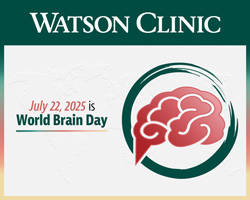 Cognitive decline does not have to be inevitable as we age. Here are eight habits that can help you keep your mind sharp and healthy as you grow older:
Cognitive decline does not have to be inevitable as we age. Here are eight habits that can help you keep your mind sharp and healthy as you grow older:
1. Exercise regularly. Exercise doesn’t just work out your muscles; it also helps you ward off mental decline. Research suggests that workouts increase the flow of blood and oxygen to your brain cells, and might even increase the size of a brain structure crucial for memory and learning.
Aerobic exercise—like fast walking—may harbor the most benefits in this regard. You should aim for 30 minutes of exercise at least five days a week.
2. Put down that cigarette. Smoking raises the risk of cognitive decline as we age. But quitting can reduce that risk to levels comparable to those who have never lit up. If you've tried unsuccessfully to quit in the past, ask your doctor for help. Just a few minutes of advice from a doctor raises the odds of succeeding at quitting.
3. Eat for brain power. Altering your diet may help you keep your brain fit. Consume a diet that’s low in saturated fats and trans fats and rich in fruits, vegetables and whole grains. This diet is also good for your heart as well.
4. Safety first. Take steps to avoid serious brain injury. Always wear a seat belt when riding in any vehicle for any length of time. Wear a helmet when playing contact sports or biking.
As we get older, our risk of slips and falls increases. You can guard against these by having your eyes and hearing tested on a regular basis. In addition, talk to your doctor if your medications make you dizzy or discombobulated.
5. Get plenty of shut eye. Memory and other cognitive functions can become impaired when you’re running on little sleep. You should aim for seven to nine hours of sleep every day.
6. Challenge your brain. Mental stimulation is a must. There are many ways you can challenge your brain during your daily routine. Adopt a new skill or hobby. Try to do math in your head instead of reaching for a calculator. Play games that require strategic thought such as chess. Look into taking a course at a nearby college or community center.
7. Be sociable. Share your exercise time with a friend, stay connected to those who are closest to you, and go out of your way to introduce yourself to new people. All of these practices can sharpen your mental health.
Volunteerism also has major mental benefits. Working with others and helping to improve the lives of people in your community helps you stay engaged in something meaningful. It can also open your mind to experiences and personalities you’ve never before experienced.
8. Don't ignore a TIA. Transient ischemic attacks, or TIAs for short, are also known as mini-strokes.
During these events, blood flow to the brain is blocked for often less than five minutes—much less time than in a major stroke—and usually produces no lasting damage. Keep in mind, however, that about 15 percent of all major strokes are preceded by a TIA.
Strokes and TIAs share a series of signs and symptoms including:
• Numbness or weakness in your face, arm or leg, especially on one side of your body.
• Trouble talking or understanding what others are saying.
• Trouble seeing out of one or both of your eyes.
• Loss of balance or coordination.
• Severe headache for no known reason.
If you experience any of these symptoms, you should call 911 right away no matter how long you experience them. A TIA is a medical emergency and requires immediate evaluation. Seeking help quickly should help you prevent the emergence of a major stroke.
Watson Clinic's Neurology department specializes in the treatment of disorders that impact the brain and nervous system. Call 863-680-7300 to schedule an appointment.
Sources: Alzheimer's Association; American Academy of Family Physicians; American Heart Association; American Stroke Association; Centers for Disease Control and Prevention; HelpGuide; Mental Health America; National Institute on Aging